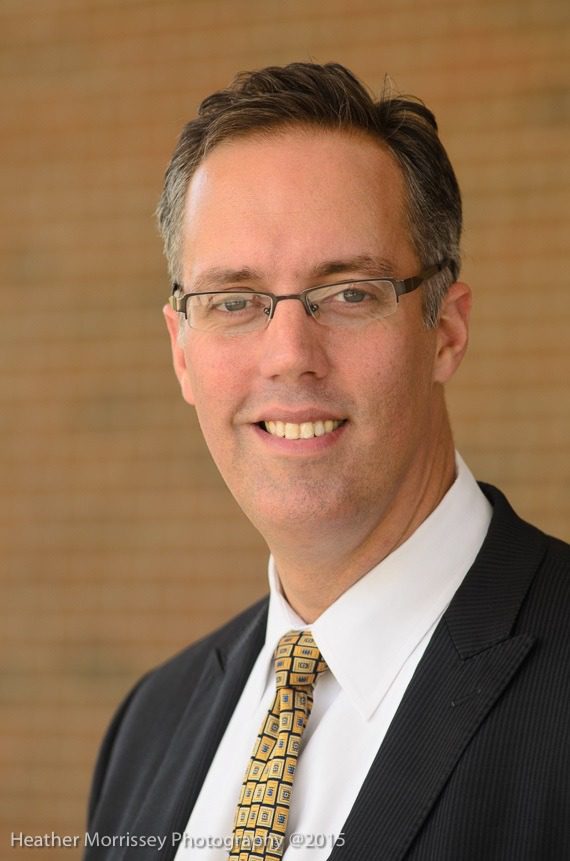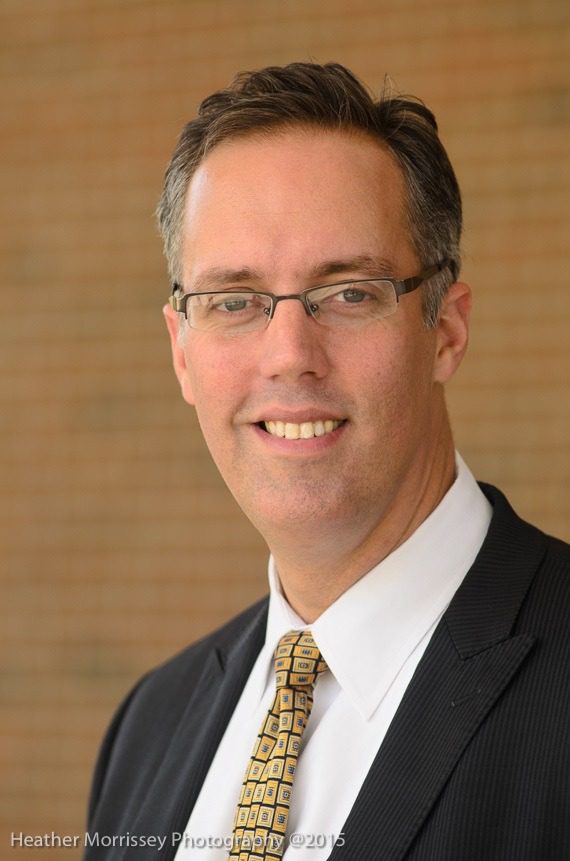Mike May, Running for Prosecutor in Prince William County, Lays Out His Positions
Daniel Nichanian | July 10, 2019
This article originally appeared on The Appeal, which hosted The Political Report project.
In November, Virginia’s Prince William County will elect its first new prosecutor in 51 years. Mike May is the GOP nominee in the race to replace longtime commonwealth’s attorney Paul Ebert, who is retiring. The jurisdiction also covers the independent cities of Manassas and Manassas Park. A former member of the county’s Board of Supervisors, May also ran against Ebert in 2015, losing to the incumbent by 3 percentage points.
The Political Report asked May about his positions on some issues that the next prosecutor will decide. May’s opponent is Democratic nominee Amy Ashworth, a private attorney and a former prosecutor in the commonwealth’s attorney office. The Political Report interviewed Ashworth before the Democratic primary. You can also read our preview of the general election.
May told the Political Report that he would “fully utilize” existing diversion programs and alternatives to detention in order to “keep non-violent offenders out of jail.” He did not indicate new avenues to expand diversion programs, or further reforms to cut incarceration. He said he backs diverting first-time marijuana possession arrests, but took issue with his opponent’s position that she would seek to avoid “conviction or incarceration” for most cases of marijuana possession. He called on the legislature to allow people to expunge first-time marijuana convictions, while declining to take a position on proposals to decriminalize or legalize marijuana.
May said that he would institute an open file discovery system and require that prosecutors share the materials relating to a case with the defense. “If the perception is that the prosecution is withholding evidence, that sows the seeds of distrust,” he said. “If the prosecution actually is withholding evidence, well, that’s much worse.” He added that he would like to share information electronically, but was not ready to provide precise guidelines as to the timeframe. May also said that he was open to seeking the death penalty, and declined to indicate whether he would scale back its use compared to the incumbent. Finally, May indicated that he favors Prince William County remaining within ICE’s 287(g) program.
The exchange has been condensed and lightly edited.
Paul Ebert, the incumbent commonwealth’s attorney is known for having frequently sought the death penalty. Would you consider seeking the death penalty if elected, and if so how frequently do you think the death penalty ought to be used?
The power to take a life is the most awesome power the government can wield. The death penalty is not something to be celebrated. It should be rare, and it should not be used for revenge. However, there are some crimes that are so heinous and so unspeakable that this punishment must be considered to keep the community safe.
When the commonwealth’s attorney determines to proceed on a death penalty case, he/she must ensure the integrity and fairness of the system and due process for the accused. This is of course vital for any criminal prosecution, but particularly so in a capital case. Recently, Judge Smith referred to such obligation as “super-due process.” In any capital case, the commonwealth attorney should be overly transparent and err on the side of caution in terms of disclosure as the case proceeds. This is one of the reasons an open-file discovery policy is so important.
Do you wish to scale back the use of the death penalty compared to the incumbent prosecutor’s record, even as you are open to seeking it?
Every case will depend on its specific facts and circumstances, but the philosophy outlined in my prior response will guide my decision making process when determining whether or not to pursue the death penalty.
You have faulted the retiring incumbent in the past for insufficient transparency, and you have pointed to the finding that his office withheld evidence. Are there specific changes you would like to make to the policies of the commonwealth’s office to ensure greater transparency? How you would communicate discovery information with the defense?
When I ran for this office four years ago, I called for criminal discovery reform (open-file). I supported open-file then and I remain committed to an open-file today. People must have confidence in our criminal justice system. If the perception is that the prosecution is withholding evidence, that sows the seeds of distrust. If the prosecution actually is withholding evidence, well, that’s much worse. An open-file policy would resolve this.
In terms of the policy details, it is not especially complicated. We must make specific provisions to protect witnesses and victims, but as a general matter we can reform our policies relatively easily with the assistance of technology. Having practiced in multiple jurisdictions (both state and federal), I have seen policies that work quite well and would likely draw from those models in implementing local procedures for Prince William.
What exactly do would understand by “open file?” Would you forward to defense counsels electronic copies of all documents pertaining to a case, within the bounds of these protective provisions, and this within a set period of time, and if so do you know what the timeframe would be?
The information should be made available within a reasonable period of time such that the defense can adequately prepare for trial. To the maximum extent practicable, I would like to use electronic means to convey information. At the same time, I have no doubt that there are logistical hurdles that could have a material impact on the timing or means of delivery. One of the first things I will do is commission an audit of the office, and the result of that audit will give us a great deal of the information needed to implement the specifics.
Virginia has a higher incarceration rate than the national average. Do you think that cutting incarceration is be goal you should pursue as commonwealth attorney, and if so what are specific reforms to current practices that you wish to implement for that?
As a Member of the Board of County Supervisors, I had to vote to expand the existing jail in our community—so I have seen firsthand how expensive incarceration is for our taxpayers. To the extent we can keep non-violent offenders out of jail through the diversion programs and other alternatives, I support them.
Your Democratic opponent has said she would not seek “conviction or incarceration” for the majority of marijuana possession cases, as well as for many “first-time nonviolent misdemeanor” cases like driving with a suspended license. What is your view of whether alternatives to incarceration and pre-trial diversion should be increased, and if so what’s the scope of the cases for which you’d like to do so? Do you agree “conviction or incarceration” should be avoided for marijuana possession and driving with a suspended license?
As a general policy matter, diversion should be fully utilized. It’s a lot cheaper for taxpayers if we can keep non-violent individuals who pose no threat to the community out of jail.
As to marijuana, the Virginia Code has a statutory diversion program for first-time possession cases and I support it. An individual should not be unduly punished for making a one-time mistake. I would also like to see the legislature amend the Code to allow individuals who utilize this diversion program for marijuana possession the opportunity to expunge the matter from their records at some point. Under present law, the charge can never be expunged even though the diversion program, if successfully completed, results in a dismissal of the charge.
When it comes to second-time, third-time, and fourth-time marijuana possession offenses, however, there is no statutory diversion available. Incarceration is probably not warranted for most of these cases, but if you don’t seek “conviction or incarceration,” the only other choice you have is to dismiss the case. In effect, you will have legalized marijuana possession by prosecutorial fiat.
Attitudes about marijuana are continuing to evolve and I am open to looking at ways to avoid undue punishment for something many believe should be legalized. At the same time, the prosecutor takes an oath to enforce the laws of the Commonwealth and a prosecutor does not get to pick and choose which laws to enforce. Ultimately, the legislature needs to resolve this matter, either by expanding the statutory framework for diversions in these kind of cases, or decriminalizing/legalizing marijuana possession generally.
With respect to other cases involving non-violent offenses, the Virginia Code has several diversion options and I support fully utilizing them.
You mentioned decriminalization or legalization. Do you have a position on what the legislature should do on either front? Others have spoken up on both sides of the debate, so I am wondering if you would add your voice to either debate.
I think there are reasonable arguments on both sides, but it’s ultimately up to the legislature.
Prince William County has a 287(g) contract with ICE. Your opponent, Amy Ashworth, has expressed opposition to it. This does not fall under the commonwealth attorney’s jurisdiction, but do you have a position on whether the county should remain part of the program?
As you note, this is not within the purview of the Commonwealth’s Attorney, but I do support the county continuing in this program.
State Delegate Jennifer Carroll Foy, a Democrat, called on Paul Ebert to end the use of cash bail last year. What is your view on whether cash bail is being used appropriately in the county now, and would you curb its use?
As a matter of fundamental fairness, we don’t want someone to stay in jail longer than his/her likely sentence just because they can’t pay a bond. As noted previously, as a Supervisor I had to vote to commit taxpayer dollars to fund the jail expansion. That expansion should primarily be to enhance public safety; not to house individuals that are not a danger to the community and are only there because they can’t pay bond.
However, if we are going to reform the cash bail system, we need to increase investment in pre-trial services and other local government pre-trial monitoring programs. Our office policy would be to request alternatives to cash bail whenever feasible and appropriate. If the accused is a danger to the community, we will oppose pretrial release.




